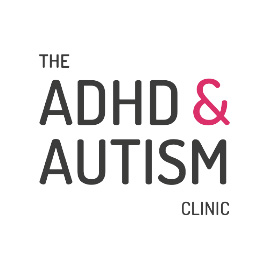There are several medications which are used to treat attention deficit hyperactivity disorder (ADHD), including:
- Stimulants: the most commonly used medications for ADHD are stimulants, such as methylphenidate (Medikinet, Equasym XL, and Concerta XL) and amphetamines (lisdexamfetamine and dexamphetamine). These medications work by increasing levels of dopamine and noradrenaline, neurotransmitters in the brain that are involved in regulating attention and behaviour.
- Non-stimulants: atomoxetine (Strattera) is a non-stimulant medication that is also commonly used to treat ADHD. It works by increasing levels of noradrenaline in the brain, which helps to regulate attention and impulse control.
- Antidepressants: certain antidepressants, such as bupropion), may also be used to treat ADHD, particularly in cases where the individual has comorbid depression. These medications work by increasing levels of noradrenaline and other neurotransmitters in the brain.
- Other medications: medications including guanfacine and clonidine may be used to treat ADHD.
How does methylphenidate work?
Methylphenidate is a prescription medication used to treat attention deficit hyperactivity disorder (ADHD) and narcolepsy. It works by increasing the levels of certain neurotransmitters, such as dopamine and noradrenaline, in the brain by blocking the reuptake of dopamine and noradrenaline. These neurotransmitters play a role in regulating attention, motivation, and mood. They can also reduce impulsiveness and hyperactivity.
How does lisdexamfetamine work?
Lisdexamfetamine is a prescription medication used to treat attention deficit hyperactivity disorder (ADHD) and binge eating disorder. It works by increasing the levels of certain neurotransmitters, such as dopamine and noradrenaline, in the brain. These neurotransmitters play a role in regulating attention, motivation, and mood.
Lisdexamfetamine is a prodrug, which means it is inactive when taken and only becomes active once it is metabolised by the body. Once metabolised, lisdexamfetamine is converted into dextroamphetamine, a stimulant that affects the levels of neurotransmitters in the brain. Lisdexamfetamine is thought to improve symptoms of ADHD by increasing attention and reducing impulsiveness and hyperactivity. It is typically taken once a day, either in the morning or mid-morning, and can help improve focus and concentration throughout the day.
How does atomoxetine work?
Atomoxetine is a medication used to treat attention deficit hyperactivity disorder (ADHD). It works by increasing levels of noradrenaline, a neurotransmitter in the brain, which helps to regulate attention and impulse control. Atomoxetine is thought to work by blocking the reuptake of noradrenaline into nerve cells in the brain, increasing the concentration of noradrenaline in the synaptic cleft and enhancing its effect on the receptors in the brain. This leads to an improvement in attention, impulse control, and other ADHD symptoms.
Unlike other ADHD medications, atomoxetine is not a stimulant and has a different mechanism of action. It is taken orally, usually once or twice daily, and its effects can take several weeks to become fully apparent.
How does bupropion work for ADHD?
Bupropion is an antidepressant medication that works as a noradrenaline-dopamine reuptake inhibitor (NDRI). It works for attention-deficit hyperactivity disorder (ADHD) by increasing the levels of the neurotransmitters, noradrenaline and dopamine, in the brain, which are thought to be imbalanced in individuals with ADHD. This can help improve symptoms such as inattention, impulsiveness, and hyperactivity, allowing individuals to better focus and control their behaviour. However, more research is needed to properly understand how it works.
How does guanfacine work for ADHD?
Guanfacine is a medication used to treat attention deficit hyperactivity disorder (ADHD) and high blood pressure. It works by affecting the levels of certain neurotransmitters in the brain, including noradrenaline.
Guanfacine is an alpha-2A adrenergic receptor agonist, meaning that it activates the alpha-2A adrenergic receptors in the brain. Activation of these receptors leads to decreased release of noradrenaline in the prefrontal cortex, a brain region involved in attention, impulsivity, and other cognitive functions. This decrease in noradrenaline release leads to an overall decrease in neuronal activity, which results in improved attention and impulse control, and reduction in hyperactivity and impulsiveness, which are the hallmark symptoms of ADHD.
Guanfacine is well absorbed after oral administration and has a long half-life, allowing for once daily dosing. It is metabolized mainly by the liver and eliminated mainly through the kidneys. In summary, guanfacine works by decreasing the release of noradrenaline in the prefrontal cortex, leading to improved attention and impulse control in patients with ADHD.
How does clonidine work for ADHD?
Clonidine is a medication used to treat Attention Deficit Hyperactivity Disorder (ADHD) and high blood pressure. It works by affecting the levels of certain neurotransmitters in the brain, including norepinephrine.
Clonidine is an alpha-2 adrenergic agonist, meaning that it activates the alpha-2 adrenergic receptors in the brain. Activation of these receptors leads to decreased release of norepinephrine in the prefrontal cortex, a brain region involved in attention, impulsivity, and other cognitive functions. This decrease in norepinephrine release leads to an overall decrease in neuronal activity, which results in improved attention and impulse control, and reduction in hyperactivity and impulsiveness, which are the hallmark symptoms of ADHD.
Clonidine is well absorbed after oral administration and has a long half-life, allowing for once daily dosing. It is metabolized mainly by the liver and eliminated mainly through the kidneys.
In summary, clonidine works by decreasing the release of norepinephrine in the prefrontal cortex, leading to improved attention and impulse control in patients with ADHD.
How does aripiprazole work for ADHD?
Aripiprazole is a medication that works as an atypical antipsychotic and partial dopamine agonist. It works for attention deficit hyperactivity disorder (ADHD) by regulating the levels of neurotransmitters, particularly dopamine and norepinephrine, in the brain which are thought to be imbalanced in individuals with ADHD. This helps to improve symptoms such as hyperactivity, impulsiveness, and inattention, allowing individuals to better focus and control their behaviour. The exact mechanism of how aripiprazole works for ADHD is not fully understood and further research is needed in this area.
How do I choose a medication for ADHD?
It is important that you discuss your medication options with your psychiatrist. As well as deciding which medication might work well for you, it will be important to understand which medication is the safest and most clinically appropriate.

